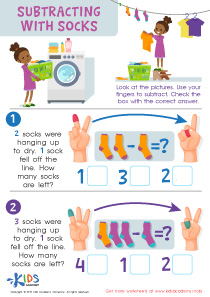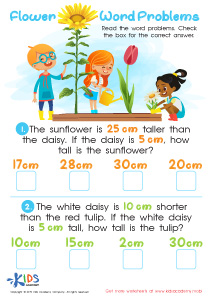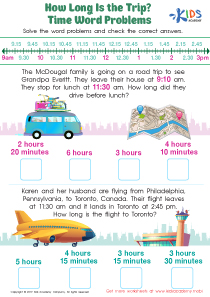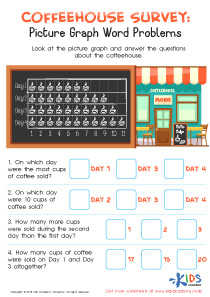Subtraction practice Easy Addition and Subtraction Word Problems Worksheets for Ages 7-8
12 filtered results
-
From - To
Welcome to our Subtraction Practice worksheets, specifically designed for children aged 7-8! Our engaging and age-appropriate word problems help young learners develop their subtraction skills while promoting critical thinking and problem-solving abilities. Each worksheet features relatable scenarios that encourage kids to apply their math knowledge in real-world situations. With various levels of difficulty, our resources are perfect for reinforcing subtraction concepts learned in class. These worksheets not only make learning fun but also support academic growth. Download our easy-to-use subtraction word problems today and watch your child's confidence and math proficiency soar!
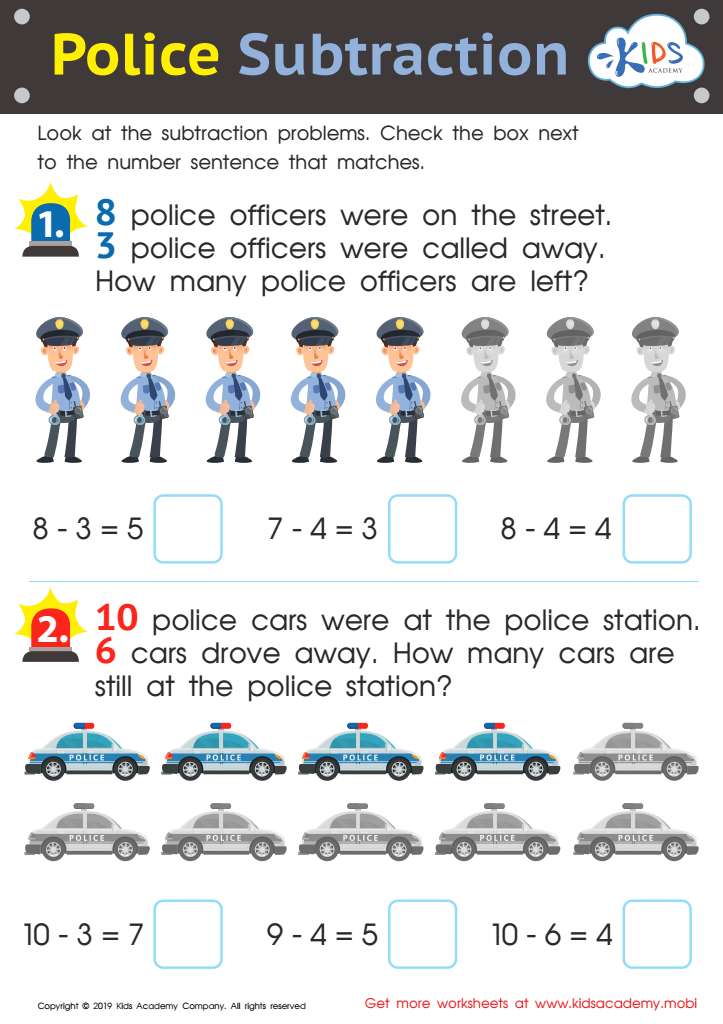

Police Subtraction Worksheet
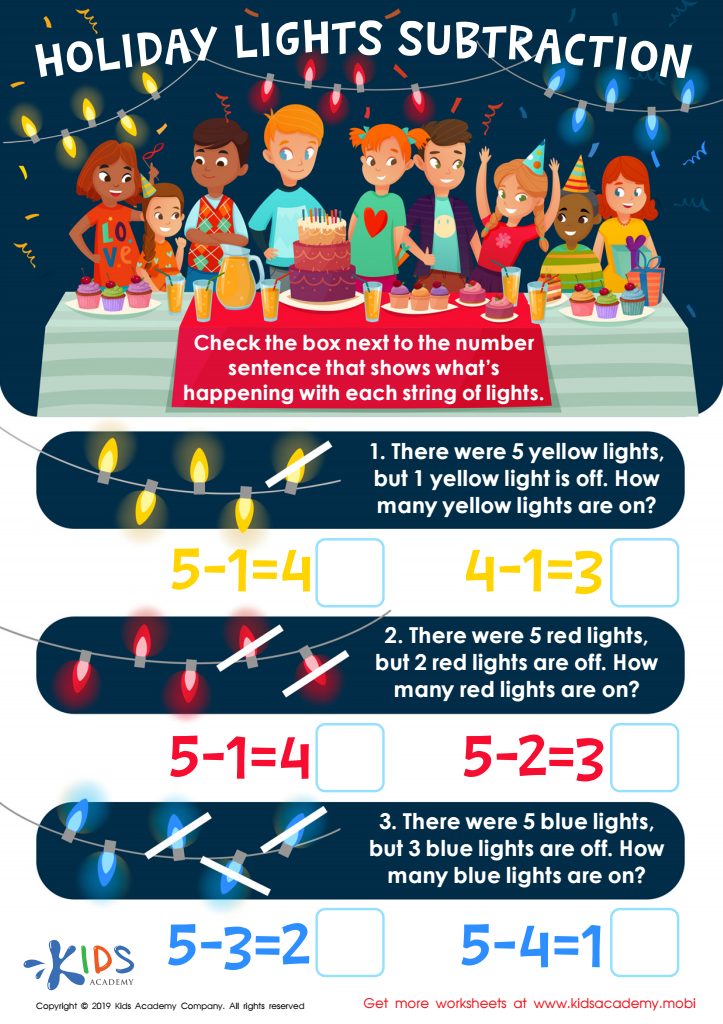

Holiday Lights Subtraction Worksheet
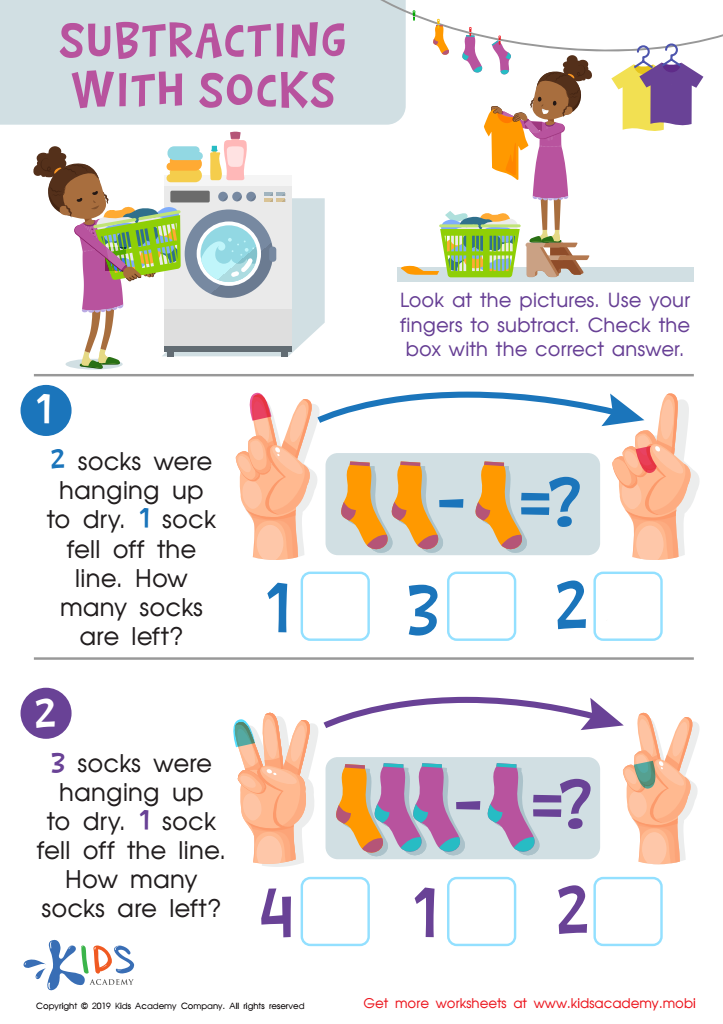

Subtracting Socks Worksheet
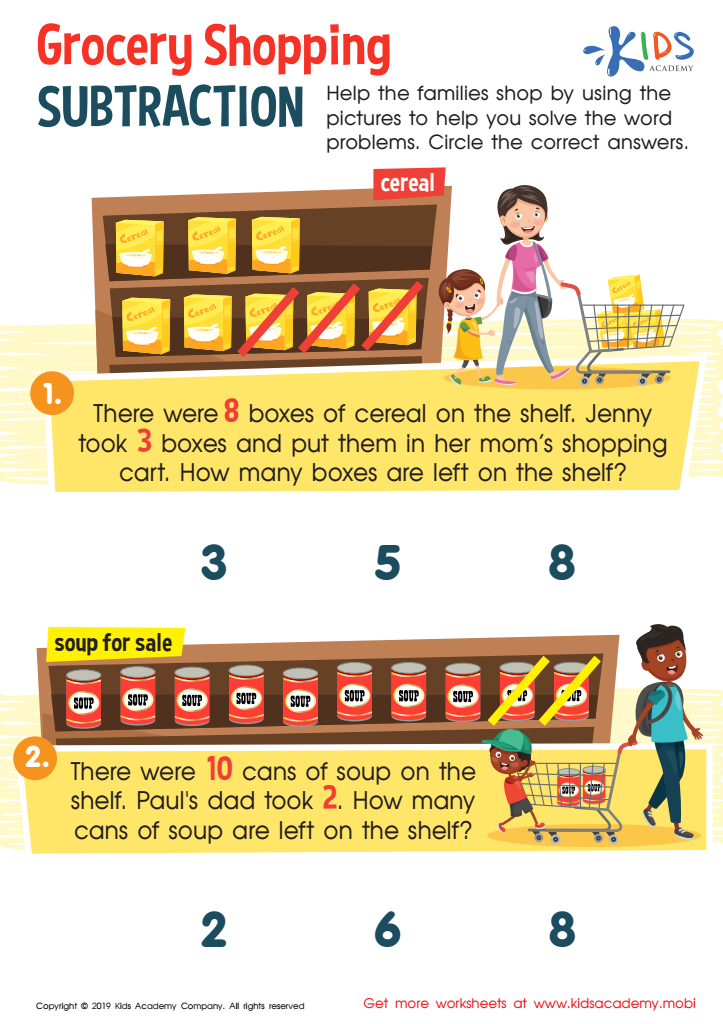

Grocery Shopping Subtraction Worksheet
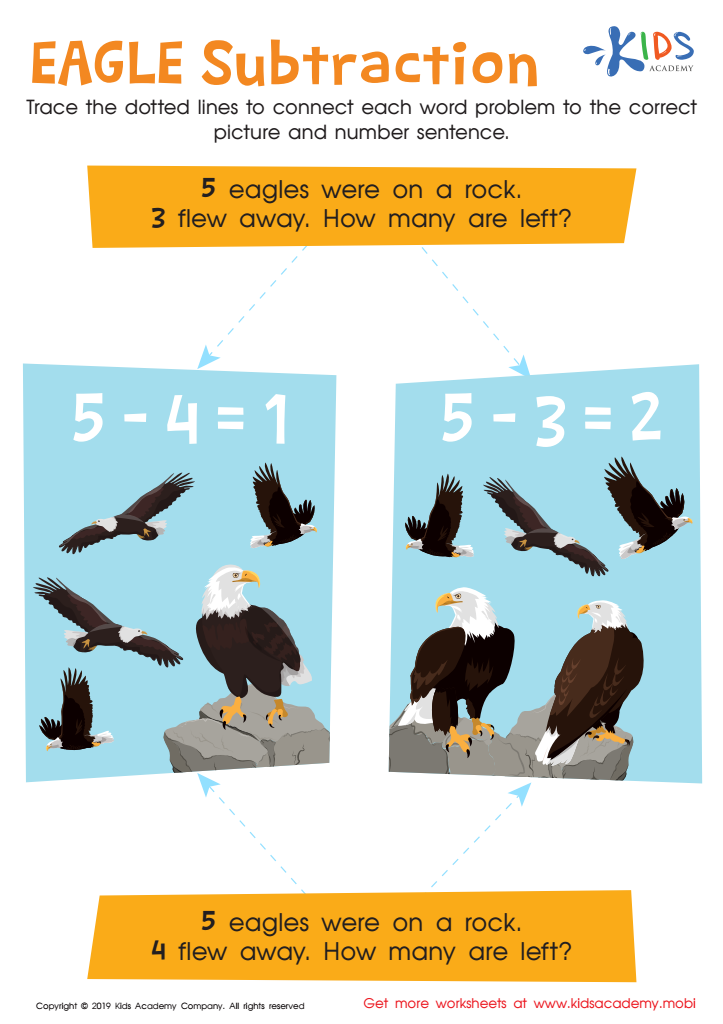

Eagle Subtraction Worksheet
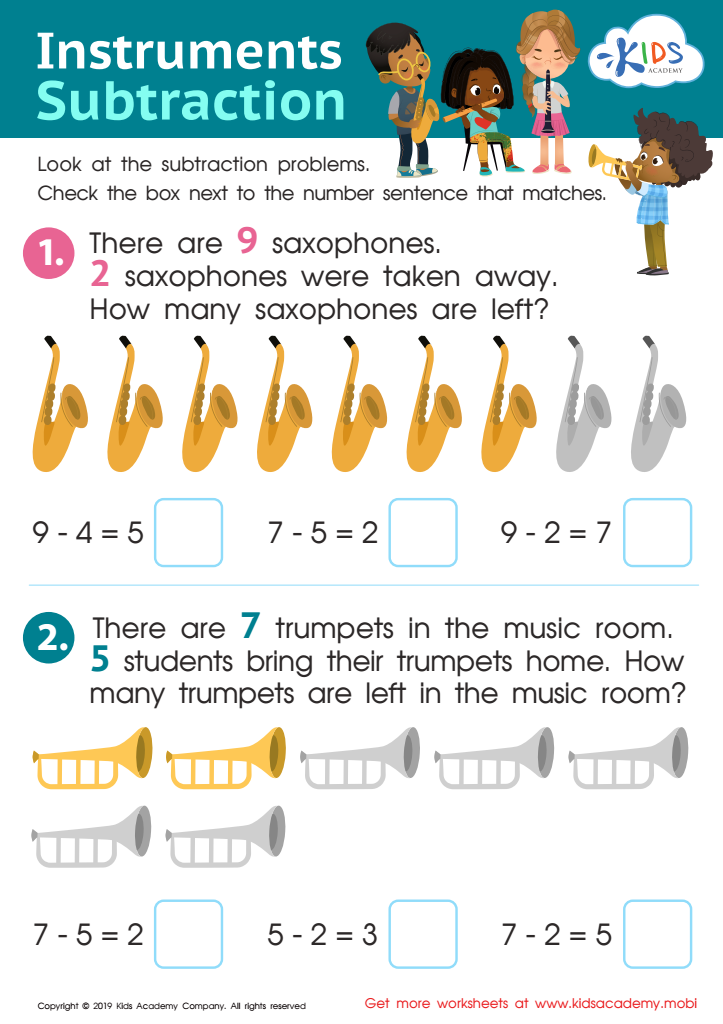

Instrument Subtraction Worksheet
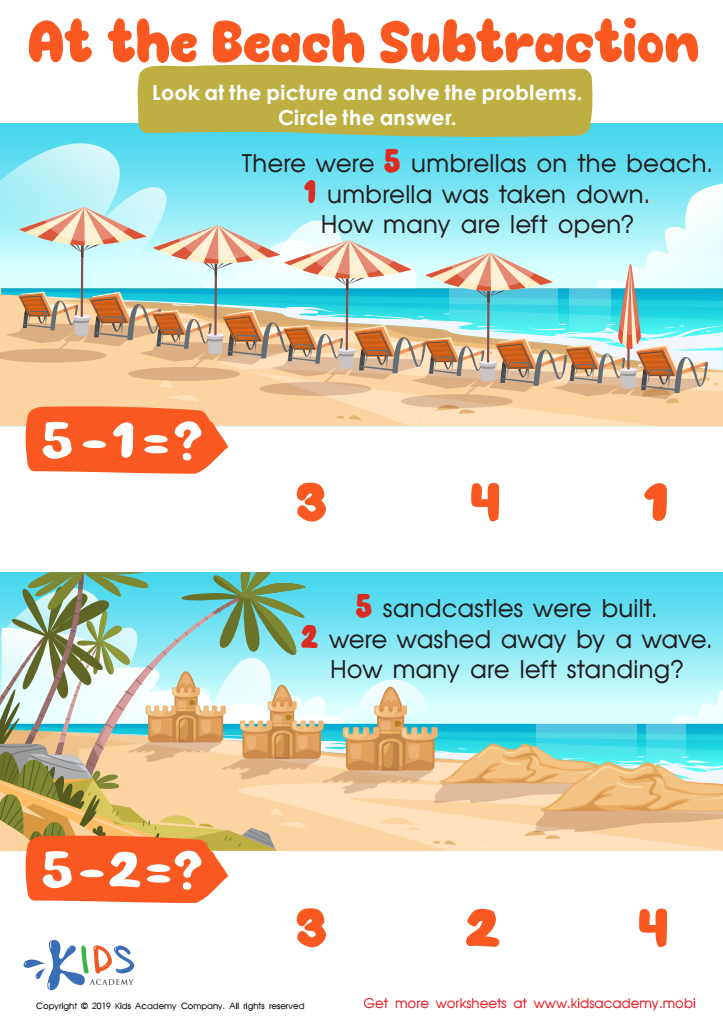

At the Beach Subtraction Worksheet
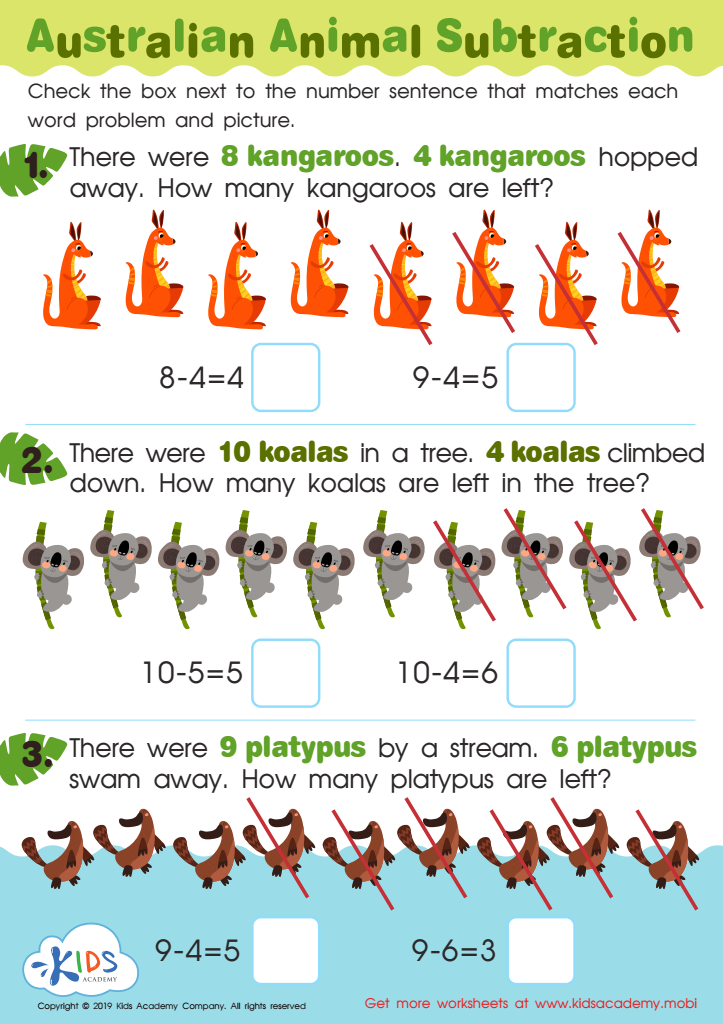

Australian Animal Subtraction Worksheet
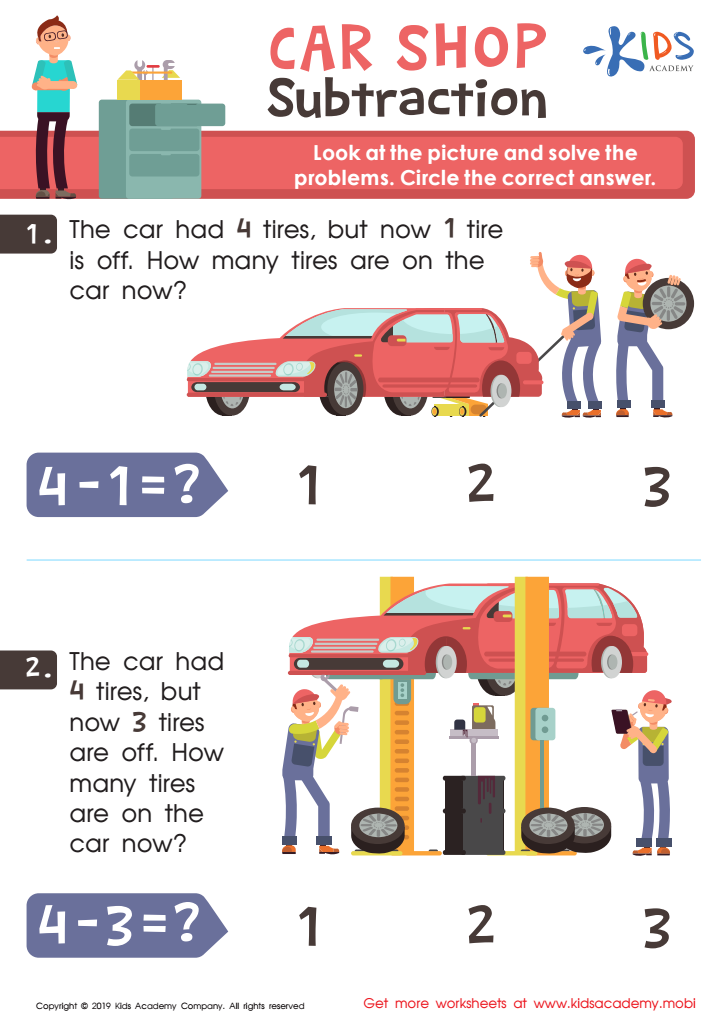

Car Shop Subtraction Worksheet
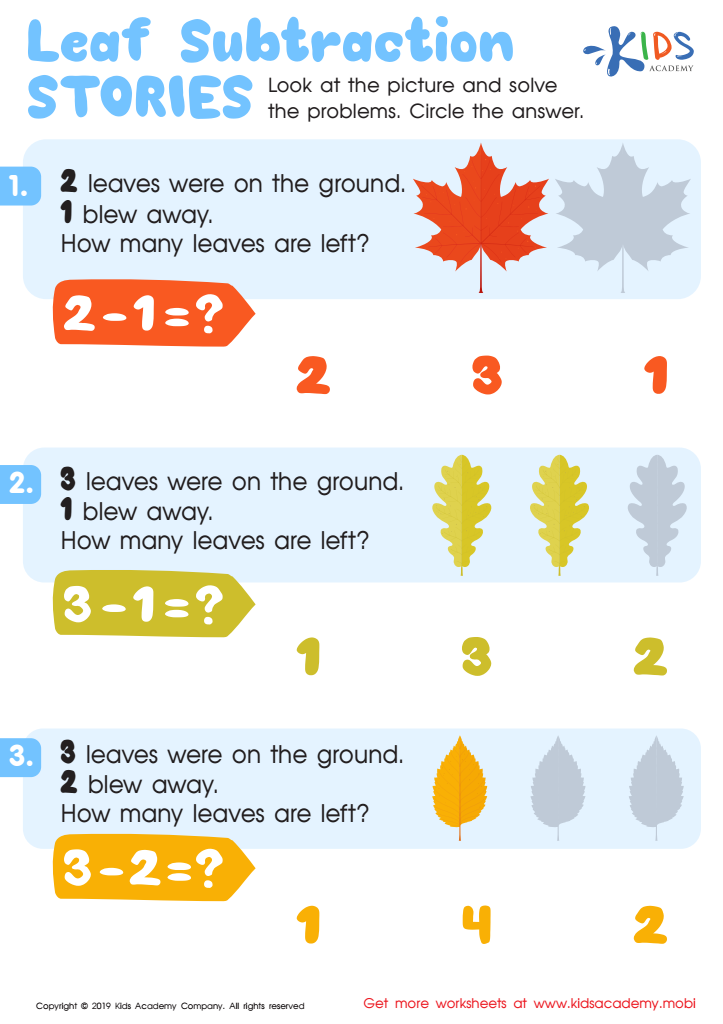

Leaf Subtraction Stories Worksheet
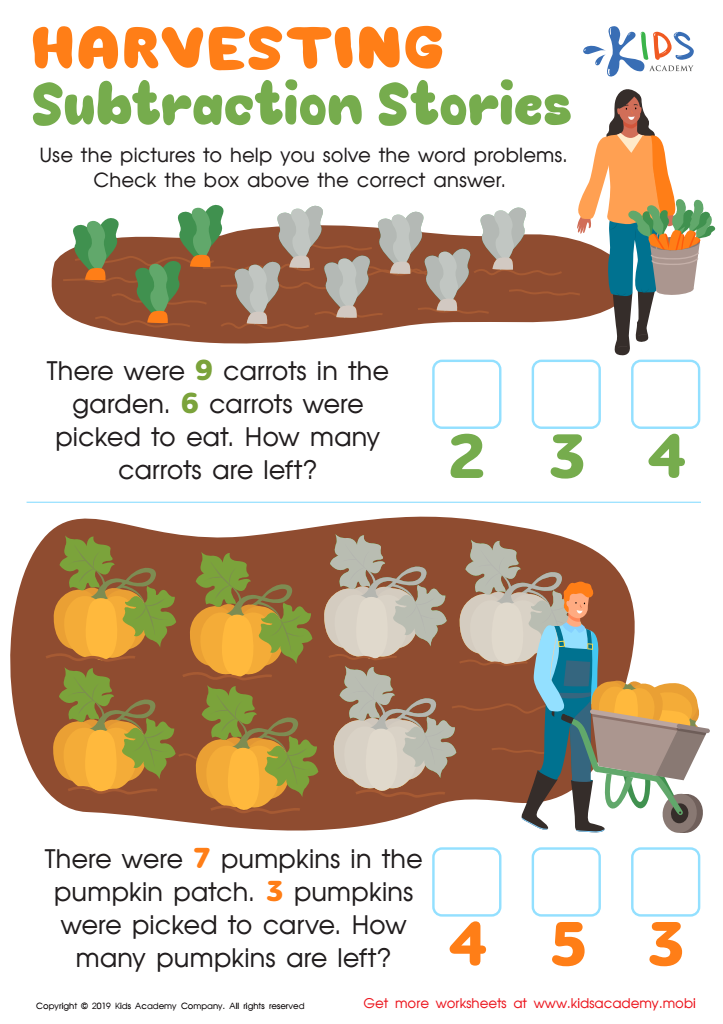

Harvesting Subtraction Stories Worksheet
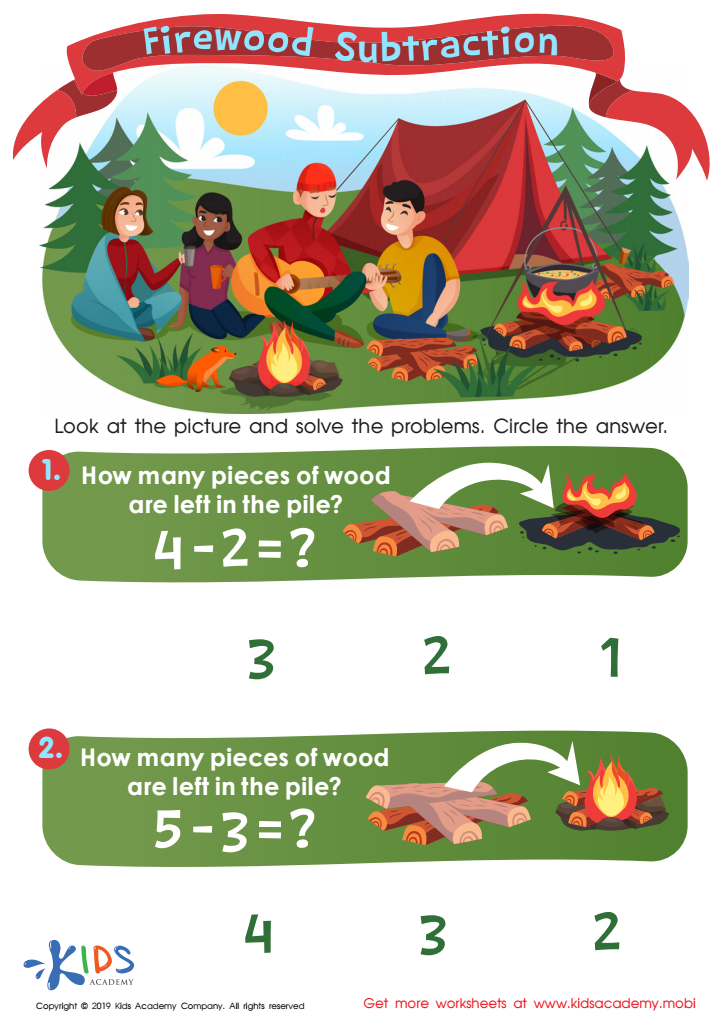

Firewood Subtraction Worksheet
Subtraction practice that includes easy addition and subtraction word problems for ages 7-8 is essential in developing students' mathematical skills and critical thinking. At this age, children are transitioning from concrete understanding of math concepts to more abstract thinking. Incorporating word problems allows them to relate mathematics to real-life situations, enhancing their comprehension and application of basic arithmetic.
Parents and teachers should prioritize these activities as they build a strong foundation for future math learning. Engaging students with word problems encourages them to think critically and enhances their problem-solving abilities. It fosters numerical fluency and empowers children to tackle more complex mathematical concepts with confidence.
Moreover, consistent practice helps reinforce subtraction skills, ensuring students can quickly and accurately respond to basic calculations. It also supports the development of other essential skills, like reading comprehension and logical reasoning, as they must interpret the problems presented to them.
In summary, focusing on subtraction practice with easy addition and subtraction word problems not only aids students in mastering fundamental math operations but also prepares them for academic success and challenges they will encounter in higher grades. It ultimately builds a love for learning and empowers children to view mathematics as a relevant and useful tool in their everyday lives.
 Assign to My Students
Assign to My Students








